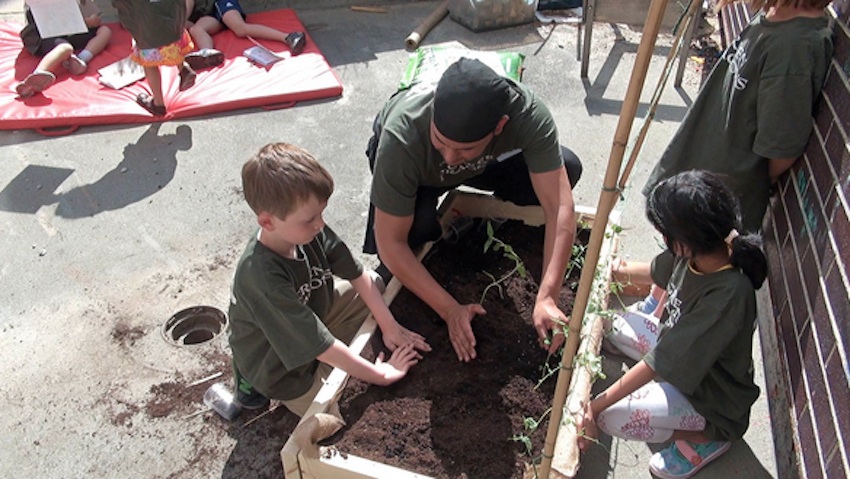Kung Food: Mixing Martial Arts With Urban Agriculture
Practicing martial arts requires a great deal of discipline, much of which, according to local experts, is derived from gardening and farming dating back to ancient times.
Using the concept of “mind, body, and soil,” three local martial arts teachers have adapted a program that brings together the fundamentals of that discipline, and matches it with urban agriculture and the importance of a healthy lifestyle, with the aim of addressing childhood obesity and poor fitness habits in Boston.
The Green Dragons program, which stemmed from the mind of Matthew Briggs, and the owner of Yang’s Martial Arts Association, a dojo in Roslindale, offers city students a chance to learn both the physical aspects of martial arts, and the benefits of community empowerment and “food literacy.” Since its conception in 2011, the program has been welcomed to several Boston schools, kindergarten through high school, and even branched out to community centers outside of the classroom. This summer, classes focused strictly on the food and Kung Fu learning will be taught at the YMAA.
Here’s how it works: the Green Dragon approach starts with students growing their own seedlings that eventually get transplanted for full harvest either in an outdoor raised bed or garden, or in indoor greenhouses in Boston. The group has five agricultural sites around the city, including their largest one located at the South West Boston Community Garden in Roslindale.
According to Mike Cermak, one of the cofounders of Green Dragons, some of the earliest weapons used in martial arts were developed from modified farming tools, as a means of defense, something the program highlights when connecting the “common roots” of their teachings. “The same tools we use to protect ourselves by growing healthy and sustainable food were converted to weapons that were then used to protect from physical harm,” he says.
Ben Warner, who owns the YMAA, says martial arts traditionally came from small villages and small communities, “so being connected to your community and food was completely natural.” One of his teacher’s masters was a simple farmer who lived on a hillside in rural Taiwan, and taught and trained people about the connection. “It’s a real concrete way of seeing both the process of learning martial arts, and watching a garden come to life,” he says.
The group also launched a Kickstarter campaign to send several students overseas to study a similar process where much of it began, Wudang Mountain in China. they will document the entire experience over the summer.
Based on their teachings and recent success in the local community, founders of Green Dragons are in the process of becoming a non-profit group, and are looking to grow a volunteer base with gardening skill sets to add to the growing business.



